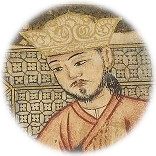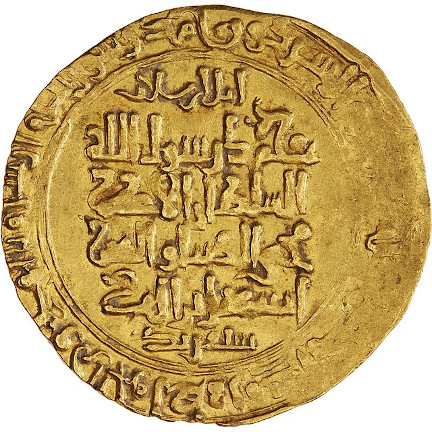Malik-Shah I (Person) AKA Jalāl al-Dawla Mu'izz al-Dunyā Wa'l-Din Abu'l-Fatḥ ibn Alp Arslān, سلطان جلال الدولہ معوذ الدنیا و الدین ملک شاه بن محمد الپ ارسلان قسیم

Malik-Shah I
1055 AD - 1092 AD
AKA Jalāl al-Dawla Mu'izz al-Dunyā Wa'l-Din Abu'l-Fatḥ ibn Alp Arslān, سلطان جلال الدولہ معوذ الدنیا و الدین ملک شاه بن محمد الپ ارسلان قسیم
- Sultan of the Great Seljuk Empire 1072 – 1092
- House of Seljuk
Malik-Shah displayed substantial interest in science, art and literature. The Isfahan Observatory or Malikshah Observatory was constructed during his reign, closing shortly after his death in 1092. It was from the work at the observatory that the Jalali Calendar was adopted.
He thought highly of the art of architecture as well, as he enjoyed building new and splendid mosques in his capital, Isfahan.
He was religiously tolerant which is supported by the fact that during his reign, subjects of the Seljuk Empire enjoyed internal peace and religious tolerance. Malik-Shah also showed lenience towards exquisite poetry as his reign is also memorable for the poetry of Omar Khayyam.
Despite being arguably the most powerful monarch of his era, it is believed that Malik-Shah was unpretentious and modest. The legend has it that during the years that were hugely successful for Seljuks on all fronts, Malik-Shah, overwhelmed by the imperial might of his dynasty, used to climb to the top of a hill and say the following: "Oh Almighty God, I will somehow cope with the problem of hunger, please save me from the threat of abundance".
- Spouse
-
1065 AD
- Issue
-
1079 AD
-
01/21/1082 AD
-
10/1086 AD
-
1087 AD
- Parents













